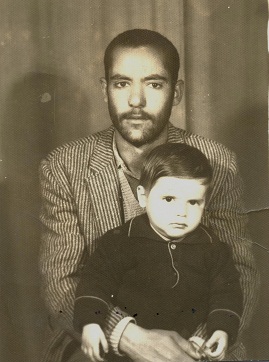

















Is Competition Anxiety Ruining Your Performance
The Article At A Glance....
The major problem in competition is letting your mind work against you rather than for you. You must accept anxiety symptoms as part and parcel of the competition experience; only then will anxiety begin to facilitate your performance. The techniques I have presented herein are but a small selection from the pantheon of stress management interventions. You should adapt these techniques to suit your needs or those of your athletes. Rememebr that pressure is your ally and will invariably bring out the best in you, just as coal under pressure can produce a diamond!
Read On...
Sport is littered with the broken dreams of those who wavered when they most needed to be in control of themselves and focused on the task at hand. Costas Karageorghis explores the nature of anxiety and its common symptoms, reviews the latest competition anxiety research, and provides you with five techniques that either control anxiety or channel it positively into your performance.
When a competitor ‘freezes’ in the big moment or commits an inexplicable error, anxiety, in one of its many guises, is very often the root cause. The precise impact of anxiety on sporting performance depends on how you interpret your world. Unfortunately, far too many athletes accept high levels of anxiety as an inevitable part of the total sporting experience and fail to reach their potential.
What precisely is anxiety?
Anxiety is a natural reaction to threats in the environment and part of the preparation for the ‘fight or flight’ response. This is our body’s primitive and automatic response that prepares it to ‘fight’ or ‘flee’ from perceived harm or attack. It is a ‘hardwired’ response that ensures survival of the human species. Sporting competition promotes similar psychological and bodily responses because there is often a threat posed towards the ego; your sense of self-esteem. Essentially, when the demands of training or competition exceed one’s perceived ability, anxiety is the inevitable outcome.
Sport places a wide variety of stressors upon participants; it can be physically exhausting, it pitches you against superior opponents, hostile fans might verbally abuse you, the elements may need to be overcome and your emotional frailties are constantly laid bare for all to see. Despite this, sport offers participants an opportunity for growth – a chance to push back personal boundaries, and a means by which to liberate the body and the mind.
Ostensibly, there is nothing damaging about the stress associated with a sporting contest, and in fact stress can be a very positive influence that leads us to tackle the challenges that make life far more rewarding. However, when we perceive stress to be negative, it causes anxiety and therefore, much depends upon how we view the demands placed upon us.
The main causes of anxiety
At the same time as providing challenge and stimulation, sport also provides considerable uncertainty. At the precise moment the Olympic archer releases an arrow, or the rugby fly-half kicks for goal, the outcome is unknown. The stress that sport provides therefore is inevitably linked with its inherent uncertainty. Sport is a cultural focal point because it is a theatre of unpredictability.
While stress and uncertainty may motivate some athletes, they induce anxiety in others. There are some distinct factors that can increase athletes’ level of anxiety. For example, the more important the contest the greater the stress, and the more likely it is that a competitor will be prone to anxiety(1).
Also, spectators can have a huge impact on how athletes feel. In fact, studies of the home advantage phenomenon show that teams playing at their home venue win on average, around 56-64% of the time(2,3), depending on the sport. The impressive medal count of host nations during Olympic Games is also notable, in particular the record-breaking haul of medals won by Australia in Sydney (2000) and by Greece in Athens (2004).
Participants in individual sports have been shown generally to suffer more anxiety before, during and after competition than participants in team sports(4). This is because the sense of isolation and exposure is much greater in sports such as triathlon, tennis and snooker than in the relative anonymity of field sports.
For athletes in high-contact sports such as boxing and martial arts, the possibility of getting hurt can also be a source of anxiety. Typically, this anxiety causes some critical changes in technique. For example, anxious boxers will often lean too far forward, be clumsy in their leg movements or fight defensively, any of which may result in them getting knocked out.
An additional factor that causes anxiety is the expectation of success. The expectations held by British tennis fans for Tim Henman and Greg Rusedski to win the men’s singles title at Wimbledon have hung over these players like a dark cloud. Some athletes rise to the challenge imposed by public expectation while others can choke. The trick is to become sufficiently ‘psyched-up’ without becoming ‘psyched-out’.
Competition anxiety theory and research
British sport psychologist Graham Jones developed a model of competition anxiety that has been widely used in the last decade (see figure 1)(5). Jones contends that it is the perception of our ability to control our environment and ourselves that determines the anxiety response. Hence, if you believe you can cope in a particular sporting situation, you will tend to strive to achieve your goals with positive expectations of success. Having positive expectations will invariably mean that you will be more confident and therefore more likely to perform close to your best.
The feeling that you can control a particular stressor such as a menacing rival or a niggling injury will mean that the symptoms of anxiety – butterflies in the stomach, elevated heart rate, sweat secretion, and so on – are interpreted as facilitative or helpful towards performance. If your judgement is that you do not have control over the situation – that your opponent is too strong or that a sore calf muscle will hold you back – then those same symptoms will be interpreted as debilitative, or likely to impair performance. The probable consequence is that this interpretation will become a self-fulfilling prophecy and your performance levels will plummet.
The extent to which we expect to control various competition stressors depends on factors that are specific to individuals, such as their personality, upbringing, experiences and trait anxiety – the degree to which individuals are predisposed to feel anxious. These are known as individual differences because they are the factors that serve to make each of us unique. In Jones’s model, individual differences mediate the relationship between a stressor and one’s perception of control.
The propositions of Jones’s model have generally been supported in the literature. One of the most recent studies examined the intensity and direction of anxiety as a function of goal attainment expectation and competition goal orientation(6). The intensity of anxiety is how much anxiety one feels, whereas direction has to do with whether they interpret the symptoms as being facilitative or debilitative to performance.
Team sport players who reported positive expectations of goal achievement and indicated some input into the goal generation process experienced the most facilitative interpretations of anxiety symptoms. The implications of this study are that athletes should set their own goals rather than have goals imposed upon them by a coach or team manager.
Research has shown that coaches and team managers may, however, have a key role to play in buffering the effects of anxiety(7). When researchers examined the influence of perceived coach support on anxiety among high school tennis players, their results indicated that for players who were predisposed to feeling anxious (trait anxious), the perceived support of their coach tempered their anxiety and helped them to cope far better with the psychological demands of competition.
Very recent work has examined the impact of motivational climate on young athletes’ anxiety(8). The results showed that coaches who promoted a mastery climate – one in which personal skill development was emphasised rather than superiority over peers (performance climate) – enabled their athletes to experience a significant decrease in anxiety from pre-season to late-season. This was in contrast to the anxiety of a control group of athletes, which increased over the season.
If you are interested in measuring competition anxiety, the instrument of choice for almost 15 years has been the Competitive State Anxiety Inventory-2(9); however, this instrument has been severely criticised and its validity challenged(10). Researchers have recently attempted to address the limitations of the original 27-item CSAI-2(11) and the result is a new version – the 17-item CSAI-2 Revised (CSAI-2R), which is more valid and reliable than its predecessor. I strongly recommend use of the CSAI-2R should you wish to assess competition anxiety.
Five techniques to help you control competition anxiety
To reach an optimum psychological state, you need to understand your own natural responses to stress and be sensitive to your bodily signals. Learning to handle the demands of competition involves learning to read your thought patterns and physical responses, and to develop the skills necessary to find your ideal arousal level. Stress management requires excellent self-awareness because, if you know yourself well, you will better understand the roots of your anxiety.
I will begin by outlining a self-awareness technique that allows you to ‘capture in a bottle’ the feelings you associate with success – ‘the winning feeling’. I will then present the popular ‘centering’ exercise which relieves tension through focusing attention to the centre of your body. Following this, the ‘five breath technique’ will be described; an ideal prelude to competition for over-anxious athletes. The penultimate exercise is ‘thought-stopping’ which deals with the cognitive symptoms of anxiety such as negative thoughts and images. Finally, ‘letting go’ will be presented – the deepest relaxation exercise of the five and ideal for the night before competition.
1. Establishing your ‘winning feeling’
Think carefully about the last time you were performing at the top of your game then list every detail you might associate with your ‘winning feeling’. Pick out the eight most important aspects of this positive feeling and write them down. You can use your winning feeling to help create an optimum competition mindset through consciously reproducing the desired elements.
2. Centering
The second technique is known as ‘centering’ because it involves focusing attention on the centre of your body, the area just behind your navel. This is a technique that is particularly effective during sports that have breaks in the action, such as in between sets in tennis, or prior to a penalty in soccer. Centering has a calming and controlling effect, providing a simple but effective way to counteract the negative effects of anxiety:
Stand with your feet flat on the ground, shoulder width apart, arms hanging loosely either side of your body;
Close your eyes and breathe evenly. Notice that when you breathe in, the tension in your upper body increases, but as you breathe out, there is a calmer, sinking feeling;
Inhale deeply from your abdomen and, as you do, be aware of the tension in your face, and your neck, and your shoulders, and your chest. As you exhale, let the tension fall away and focus on the feeling of heaviness in your stomach;
Continue to breathe evenly, focusing all your attention internally on the area immediately behind your navel;
Maintain your attention on that spot and breathe normally, feeling very controlled and heavy and calm;
On each out-breath use a word that encapsulates the physical feelings and mental focus that you want eg ‘loose’, ‘calm’, ‘focused’, ‘sharp’, ‘strong’ etc.
3. The five breath technique
This anxiety control exercise can be performed while you are standing up, lying down or sitting upright. It is ideally used just before competition, or whenever you feel particularly tense. You should inhale slowly, deeply and evenly through your nose, and exhale gently through your mouth as though flickering, but not extinguishing, the flame of a candle:
Take a deep breath. Allow your face and neck to relax as you breathe out;
Take a second deep breath. Allow your shoulders and arms to relax as you breathe out;
Take a third deep breath. Allow your chest, stomach and back to relax as you breathe out;
Take a fourth deep breath. Allow your legs and feet to relax as you breathe out;
Take a fifth deep breath. Allow your whole body to relax as you breathe out;
Continue to breathe deeply for as long as you need to, and each time you breathe out say the word ‘relax’ in your mind’s ear.
4. Thought-stopping
When you experience a negative or unwanted thought (cognitive anxiety) such as ‘I just don’t want to be here today’ or ‘She beat me by five metres last time out’, picture a large red stop sign in your mind’s eye. Hold this image for a few seconds then allow it to fade away along with the thought. If you wish, you can follow this with a positive self-statement such as ‘I am going to hit it hard right from the off!’ Thought-stopping can be used to block an unwanted thought before it escalates or disrupts performance. The technique can help to create a sharp refocus of attention keeping you engrossed in the task at hand.
5. Letting go
ou will need to lie down somewhere comfortable where you are unlikely to be disturbed. If you wish, you can also use this exercise to aid a restful night’s sleep. Allow your eyes to close and let your attention wander slowly over each part of your body – starting from the tips of your toes and working up to the top of your head. As you focus on each part of the body, tense the associated muscles for a count of five and then ‘let go’. If this does not relieve the tension in a particular body part, repeat the process as many times as you need to. Once you have covered each body part, tense the entire body, hold for five and then ‘let go’. You will feel tranquil and deeply relaxed.
دکتر سید محسن صالحی توکا,دکترای روانشناسی ورزش
http://sportpsychology.blogfa.com/